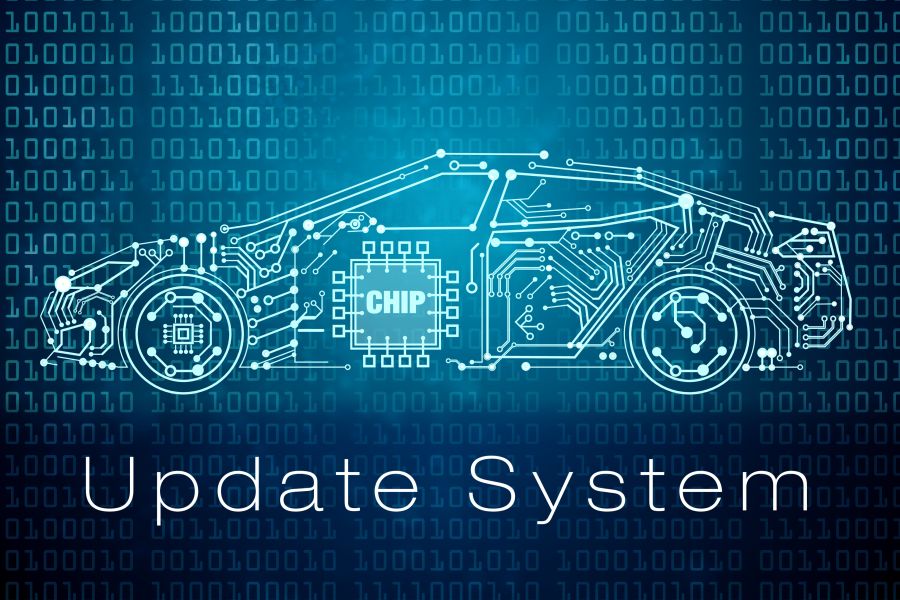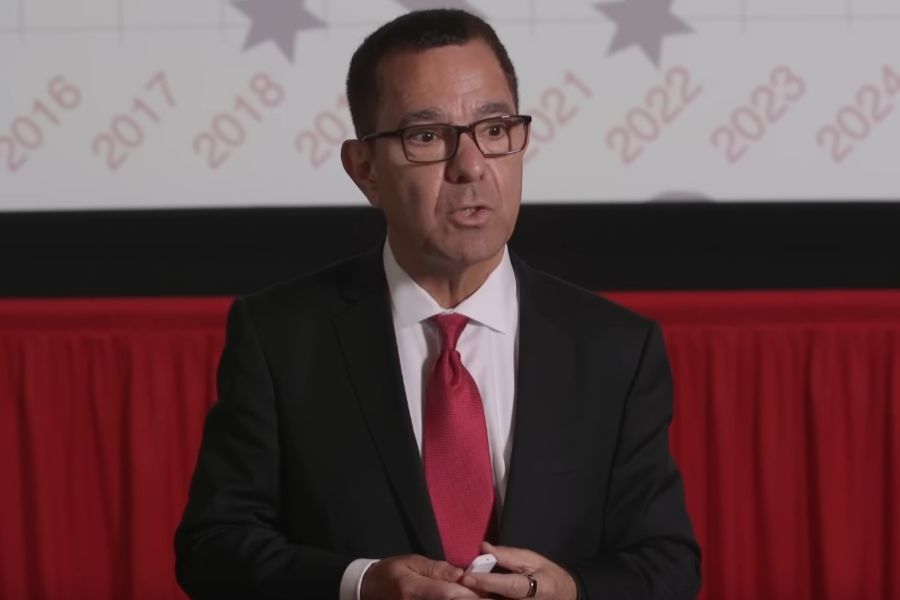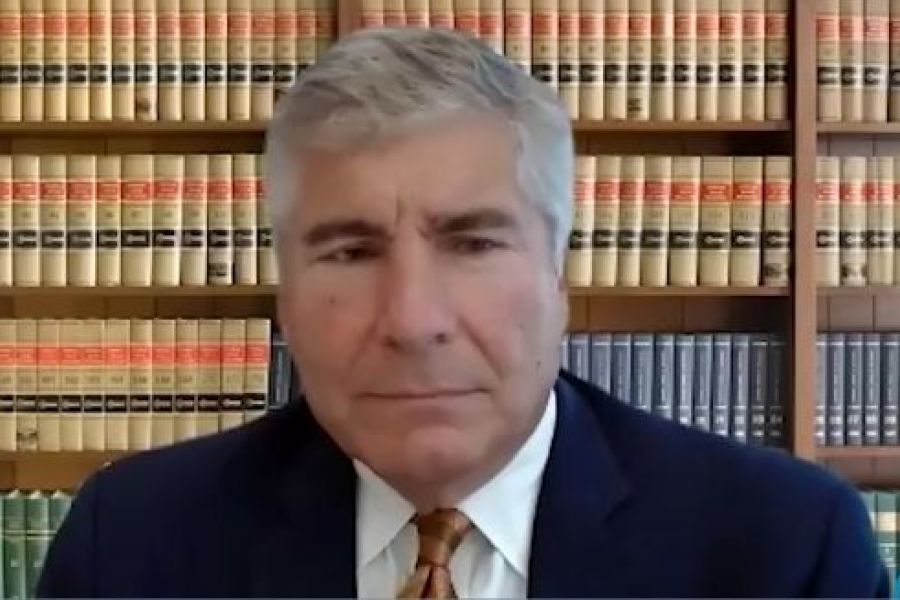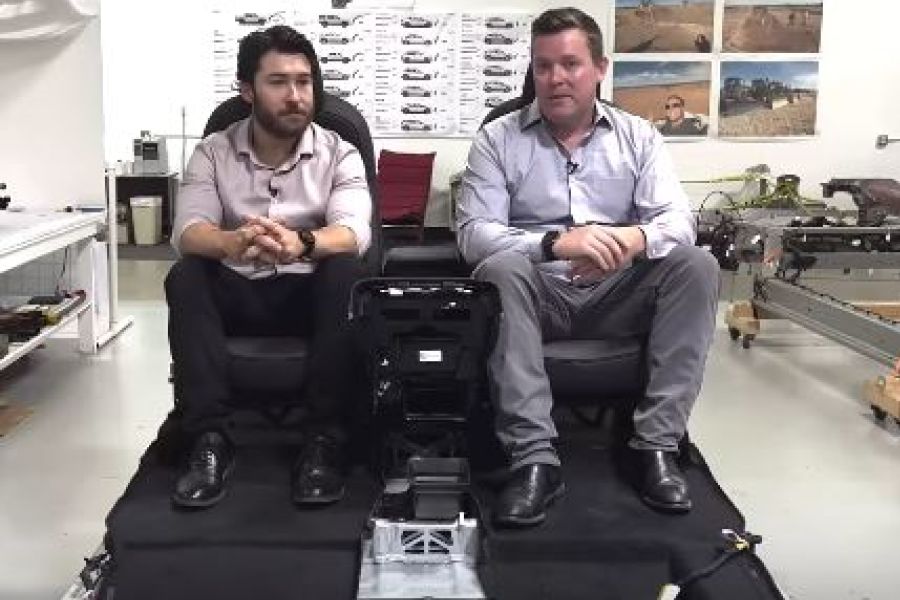As posted to the Bellavia Blatt YouTube Channel on 11/18/22, and the Fixed Ops Roundtable YouTube Channel on 11/18/22 (Run Time: 14 min, 59 sec) As EVs continue to represent a greater percentage of total new vehicle sales, ongoing challenges continue to present themselves forcing automobile dealers to combat the continued erosion of their profits. In this clip, automotive attorney Len Bellavia sits down virtually with Ted Ings at the "Fixed Ops Roundtable" to discuss a number of current issues impacting dealers. On the subject of over-the-air (OTA) updates, Len reports that GM and Stellantis have announced that the transition to OTAs will cost manufacturers $25 billion per year in lost revenues which will be "coming out of the hides of the fixed ops department of these dealerships". ...

The Great Transformation (Part 2) - The Disruption of Transportation As posted to the Tony Seba YouTube Channel on 10/31/2022 (Run Time 18 min, 23 sec) Part 2 of Tony Seba’s latest presentation on what he calls "The Great Transformation", discusses the disruption of transportation by autonomous, electric, fleet vehicles: Transportation as a Service. "The Great Transformation" is a deep dive into the key technologies that are converging in the 2020s and how they will disrupt the five foundational sectors of the economy: Information, Food, Energy, Transportation and Materials. Seba’s work focuses on the complex patterns and dynamics of change, disruption, and transformation at all scales. He is the author of Clean Disruption of Energy and Transportation, and co-author of Rethinking Humanity. The rest of the presentation can be seen here: The...
As posted to the Bellavia Blatt YouTube Channel on 9/30/22, and the Fixed Ops Roundtable YouTube Channel on 10/8/22 (Run Time: 17 min, 52 sec) With automakers speeding toward electrification, many are more than hinting at a new distribution model for those electrified vehicles involving customers ordering vehicles online. Are dealers at risk of being cut out of the sales process? In this clip, automotive attorney Len Bellavia sits down virtually with Ted Ings at the "Fixed Ops Roundtable" to discuss the future of the franchised dealership network model. Len's position is that the real risk is whether or not dealers are going to invoke their rights under their respective states' franchise laws which have been on the books for decades, designed to protect against this very subject. "State Dealer...
As posted to the Redwood Materials YouTube page on 8/11/22 Run Time 41 minute, 15 seconds In this clip, JB Straubel, Founder & CEO of Redwood Materials and Tesla co-founder & former CTO details how recycling lithium-ion batteries will cost effectively help EV demand & supply chain needs. Of concern however is that legacy automotive manufacturers haven’t “done the math” on attaining the raw materials needed to produce batteries in their transition to electric vehicles, and skepticism among mining companies about the future demand of EVs and the truly massive transformation of industry necessary to transition the world to a sustainable energy economy. JB believes that it is going to be challenging for auto makers coming into EV production a bit late. Securing enough supply of batteries...
On its website, the IRS has issued guidance on accessing the Inflation Reduction Act of 2022's tax credits for electric vehicles ("Plug-in Electric Drive Vehicle Credit at a Glance"), while the Energy Department listed credit-eligible cars, trucks, and SUVs ("List of Vehicles with Final Assembly in North America") on 8/16/22, just hours after President Biden signed the law. Credit Amounts The Act introduces a $4,000 tax credit for the purchase of used electric vehicles (EVs), and updates the $7,500 credit for new EVs . . . Vehicle Price Caps A major change however is the introduction of caps on the price of new vehicles, based on the buyer's income, that qualify for that credit. The caps imposed are: $55,000 for electric cars, and $80,000 for SUVs and pickup trucks. Final Assembly...
Excerpt of an article posted to the ARK Invest website on 7/15/22 According to the research of ARK Invest, during the next five years the auto industry as measured in units will grow, but as measured by enterprise value, it will shrink. In 2021, the number of light vehicles sold globally was 78 million and the enterprise value of automakers, roughly $3.5 trillion. According to IHS Markit, during the next five years unit auto sales will increase at a 4.7% compound annual growth rate and hit a new high at 98 million units in 2026. ARK’s Non-Autonomous EV Base Case agrees with the consensus view that unit sales will increase by 20 million during the next five years but that the enterprise value of global automakers...
As posted to the Munro Live YouTube Channel on 8/1/2022 (Run Time 49 min, 46 sec) Ford CEO Jim Farley, Linda Zhang (F-150 Chief Nameplate Engineer), and Doug Field (Chief Officer of EVs and Digital Systems) deliver Munro & Associates a Ford F-150 Lightning and sit down for a down-to-earth interview with Sandy Munro to discuss, among other things, urgent changes necessary to avoid a financial calamity in the transition to EVs. (This is Blog Post #1250) Sandy Munro is an automotive engineer who specializes in machine tools and manufacturing. He joined the Ford Motor Company in 1978 and then started his own consulting company, Munro & Associates, which specializes in lean design, tearing down automotive products to study and suggest improvements and innovations....
Excerpt of an article posted to the Memos by Heller House website on 7/27/22 In their book The Innovator's Solution, Clayton Christensen and Michael Raynor cite the example of IBM as a cautionary tale against outsourcing activities that "might seem to be a non-core activity today" but that "might become an absolute critical competence to have mastered in a proprietary way in the future". IBM decided to outsource the microprocessor for its PC business to Intel, and its operating system to Microsoft. IBM made these decisions in the early 1980s in order to focus on what it did best - designing, assembling, and marketing computer systems. In the process of outsourcing what it did not perceive to be core to the new business, IBM put into business the...
As posted to the Munro Live YouTube Channel on 7/5/2022 (Run Time 17 min, 23 sec) The team at Munro & Associates just dropped the structural battery pack (with 4680 cells) out of their brand-new Texas-made Tesla Model Y. What they found is something that they've never seen . . . ever. The seats, console, carpet, etc. are mounted to the structural battery pack which can be removed in one assembly from the bottom of the car. Just the improvement to the ease of putting together the inside of the car on the assembly line when you're coming up from below because there is no floor is phenomenal. But there's more. (This is Blog Post #1231) Sandy Munro is an automotive engineer who specializes in machine tools and manufacturing....
As posted to CBT News on 6/14/22 (Click Image to View Clip - Run Time: 18 min, 46 sec) Automakers have been making some unprecedented moves with regards to electric vehicles . . . so much so that many franchise dealers are becoming concerned about the future of their businesses. In this clip, automotive attorney Len Bellavia sits down virtually with Jim Fitzpatrick on CBT News' "Inside Automotive" to discuss recent factory announcements as well as his perspective on the future of the franchised dealer network model. With OEMs implying that it is their wish to implement a direct-to-consumer sales model in some form or another, Bellavia states that franchise dealers are wondering if action needs to be taken. From his perspective, the broad dealer consensus seems to be...










